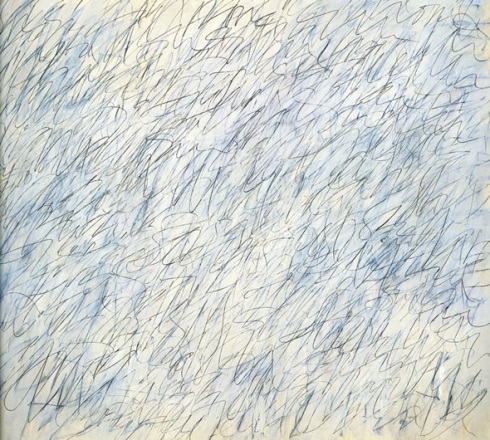
This year I am going to try to do a better job of communicating my communication needs.
I do not know why I am this way, but I have a painful sensitivity to communication obstructions. I do not think the sensitivity per se is unusual. The intensity of the pain probably is.
I am beginning to think it is partly caused by being an adult child of an autistic parent. It also did not help that I was transplanted at age 7 and grew up in an alien culture, and had very little parental help in figuring out how to navigate the sea of otherness into which I was dropped without flotation devices. And the condition has been intensified by the effort I have applied to learning from the best minds of history and acquiring many different ways of understanding the world. All this work has yielded what I believe are crucially important insights. It is depressing when people I consider friends treat what I have worked so hard to understand as insignificant.
Here are some examples of what I experience as painful obstructions:
- When attempts at communication — emails, messages, calls — are left unanswered.
- When I’m repeatedly interrupted when I am trying to get a complex point across.
- When someone is distracted or inattentive or changes the subject when I’m trying to discuss something important.
- In issues of differing worldview, when the other person refuses to cooperate dialogically to establish mutual understanding prior to debating individual points of fact.
- When the other person uses ad hominem arguments to invalidate my perspectives on the basis of how they’ve decided to categorize me. This includes the category “privileged”.
- When conversations I’ve indicated are important to me are repeatedly postponed, dropped or forgotten.
- When I am not given the benefit of the doubt that what I am trying to convey is at least partially-new and worth learning, and instead approaching the material as probably already known or not worth knowing.
- When others make gestures intended to deflate my over-inflated sense of self-importance or undermine my faith in the importance of the kinds of knowledge I pursue. This especially includes delivering destructive cynicism in the guise of humor.
These behaviors are not in themselves unacceptable or immoral. From acquantances or strangers, they are normal and should be expected.
But friendship requires more than normality. Friendship means caring about the meaning and impact of one’s behavior from the point of view of the friend, even — or especially — if the significance or impact is different for you.
It is precisely in honoring the peculiar differences that respect in its truest form occurs. “Re- back; “-spect” look. A friend is someone who believes that his friend looks back at him and sees something, knows something and feels something different and important from what he sees.
It is precisely when a friend seems to make little or no sense that a person’s faithfulness to friendship activates. Where you can appeal to this faith, there is friendship. Where the appeal cannot be made, the limits of friendship have been crossed.
To be a friend is to be able to make an appeal on any of these points knowing that the appeal will be taken seriously. This does no mean the appeal is automatically accepted at face value and obeyed. This would be destructive. It only means the appeal is treated as valid and important and deserving serious attention. Such appeals cannot be ignored, dismissed, explained away or deferred indefinitely.
*
This year I am going to do a combination of several things to try to get some peace in the area of communication:
- Set the context for any especially non-casual conversations, to increase the odds that it will be productive.
- Try to explain myself and my communication needs to people I consider actual or potential friends, to see how far the appeal to friendship is effective with them. Sharing this article might be a start.
- Getting realistic about who can and will be a friend, and who ought to be regarded more as a friendly acquaintance, or as an adversary. I need this clarity.
And, of course, I will continue to monitor myself and try to do these things I’ve listed to others as little as possible and to catch myself as quickly as possible when I do do them. If I do any of them to you, and you are my friend, you can make an appeal, and I will make every effort to change.
And even more importantly, if I am your friend and I do things that bother you — especially things that make no sense to me — help me understand and adjust.
Or failing that, let’s accept non-friendship. Isn’t that better than falseness?


